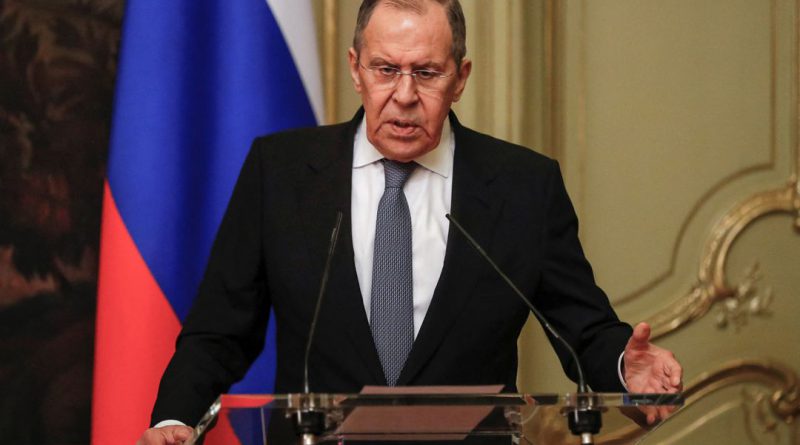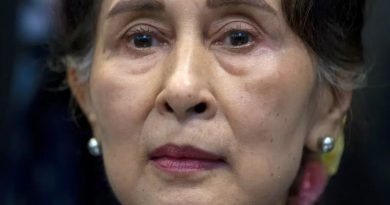Nuclear war? Russia’s Lavrov says: I don’t believe so
London (Reuters) – Russian Foreign Minister Sergei Lavrov said on Thursday he did not believe the conflict in Ukraine would spiral into a nuclear war but cautioned the United States and Europe that Moscow never again wanted to be dependent on the West.
Russia’s economy is facing the gravest crisis since the 1991 fall of the Soviet Union after the West slapped heavy sanctions on almost the entire Russian financial and corporate system following Moscow’s Feb. 24 invasion of Ukraine.
Asked by a Kremlin correspondent for Russia’s Kommersant newspaper if he thought a nuclear war could be triggered, Lavrov told reporters in Turkey: “I don’t want to believe it, and I do not believe it.”
Lavrov, President Vladimir Putin’s foreign minister since 2004, said the nuclear theme had been thrown into discussions only by the West, which he said kept on returning to nuclear war like Sigmund Freud, the father of psychoanalysis.
“Of course it gives us cause for concern when the West, like Freud, keeps on returning and returning to this topic,” Lavrov said after talks in Antalya, Turkey with his Ukrainian counterpart Dmytro Kuleba.
Lavrov said talk of a potential Russian attack on the formerly Soviet Baltic states – Lithuania, Latvia and Estonia, now all members of the European Union and NATO – “appear to be old hoaxes”.
Russia and the United States have by the biggest arsenals of nuclear warheads after the Cold War that divided the world for much of the 20th century, pitting the West against the Soviet Union and its allies.
Putin on Feb. 27 ordered Russia’s nuclear forces to be put on high alert, citing Western sanctions and aggressive remarks by leading members of the NATO military alliance. Russian officials later cited British comments about a possible confrontation between NATO and Russia.
Go East
Putin says the “special military operation” in Ukraine is essential to ensure Russian security after the United States enlarged the membership of NATO up to Russia’s borders and supported pro-Western leaders in Kyiv.
Ukraine says it is fighting for its existence and the United States, and its European and Asian allies have condemned the Russian invasion. China has called for calm.
Now that the West has meted out crippling sanctions on Russia, Lavrov said Moscow was turning away from the West and would cope with the economic consequences.
“We’ll emerge from this crisis with a revitalised psychology and conscience: We won’t have any illusions that the West can be a reliable partner,” Lavrov said. “We will do everything to ensure that we never again depend on the West in those areas of our life which have a significant meaning for our people.”
In Moscow, Sergei Chemezov, a close ally of Putin, also defended Russian actions in Ukraine, saying that Russia could endure the crippling sanctions imposed by the West and would ultimately emerge victorious.
Putin, speaking to the government about measures to deal with the sanctions fallout, said Russia would replace imports by developing domestic markets and emerge stronger.
“It will all lead to an increase in our independence, self sufficiency and our sovereignty,” Putin said.
When the Soviet Union crumbled, many people in Russia and the West hoped that the divisions of the Cold War were over.
Asked about energy sanctions imposed by the United States, Lavrov said Russia would not try to convince any purchaser to buy its energy.
In a clear reference to China, the world’s second largest economy, Lavrov said Russia had markets for its oil and gas.



